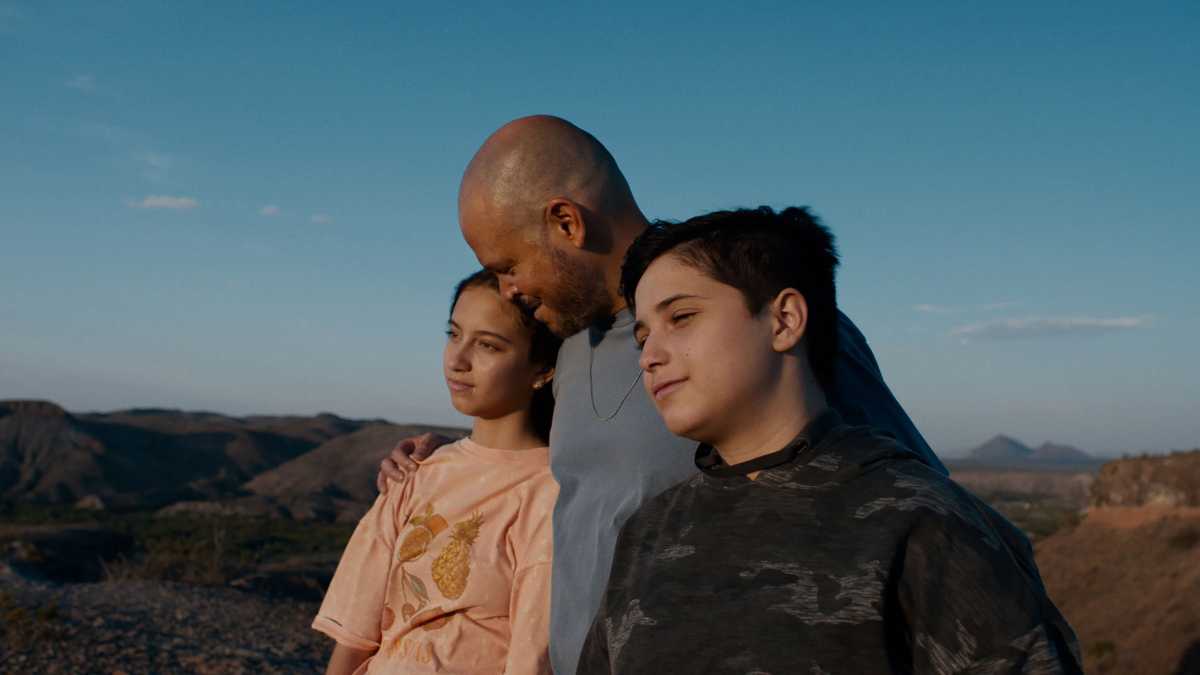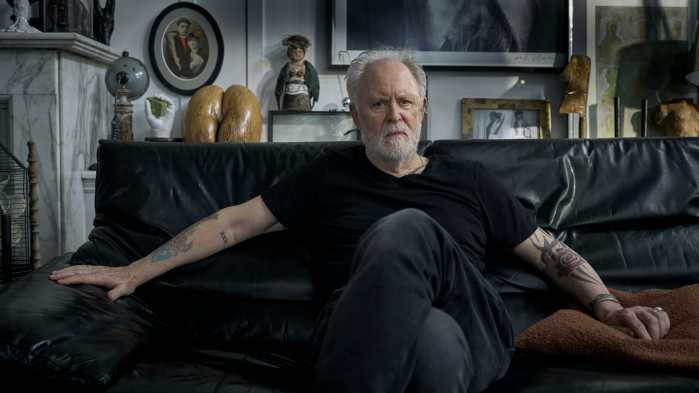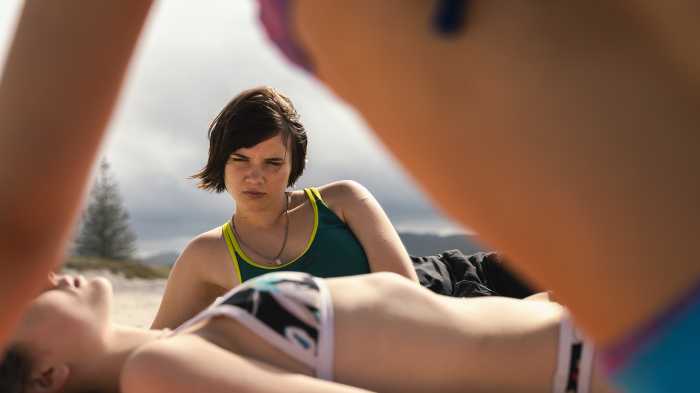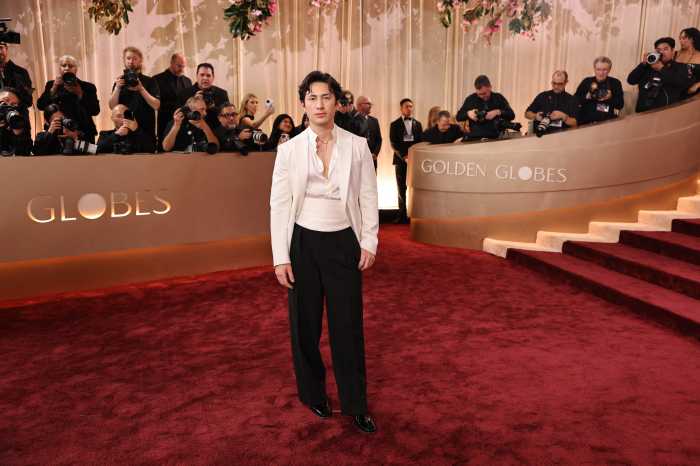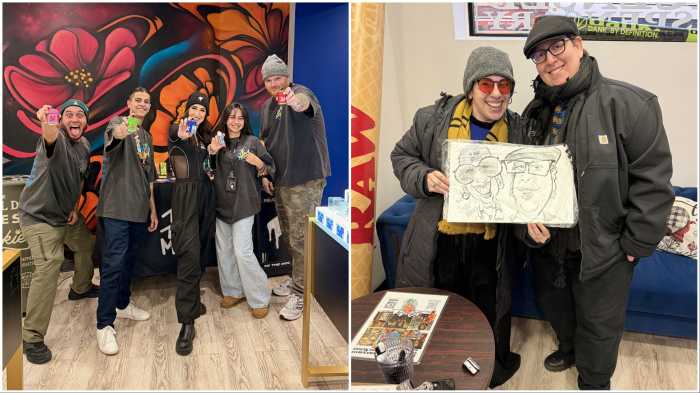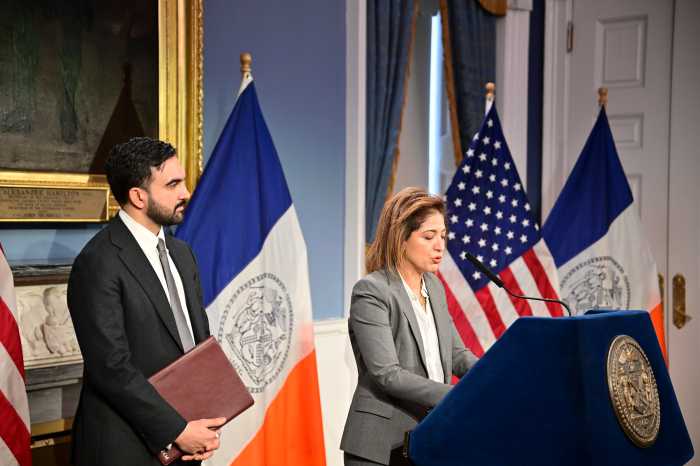“In the Summers” is a knockout feature debut by the queer writer/director Alessandra Lacorazza. Set entirely in Las Cruces, New Mexico, the film chronicles two sisters, Eva (Luciana Elisa Quinonez as a tween; Allison Salinas as a teen; and Sasha Calle as a young adult) and the queer Violeta (Dreya Castillo/Kimaya Thais/Lio Mehiel), as they visit their father, Vincente (René Pérez Joglar, aka Residente) four times over an approximately 10-year period.
The beauty and brilliance of Lacorazza’s storytelling is that what is unspoken is as important and as revealing as what is said. Changes happen off screen between episodes, which engage the viewer, who gets to fill in the blanks. (The film also deliberately does not provide subtitles for the few brief exchanges in Spanish, which invites audiences to “lean into” the story.)

In a recent interview with Gay City News, Lacorazza talked about developing her approach to making “In the Summers.”
“I gravitate to really minimal storytelling both in film and books,” she said. “For me it’s about trusting the audience who can fill in the blanks. It’s satisfying and gratifying and you don’t have to over-tell. Viewers can make up their own minds about the characters while being softly guided.”
The film, is not surprisingly, “slightly autobiographical.” Lacorazza, who is Colombian, and immigrated to the U.S., claims she wanted to reflect her experiences in the film, explaining about her relationship with her own father: “We really didn’t communicate outside of the time we spent together.”
The first summer in the film is mostly fun and games, but things get a more distant and awkward as various changes take place during or between visits. Violeta in particular, becomes more defiant, and develops a crush on Camila (Gabriella Surodjawan as a teen; Sharlene Cruz as a young adult). Violeta’s gender and sexuality also forms a storyline.
“For me it was important to show [Violeta] who is queer/non-binary, and not let the story revolve around that,” Lacorazza acknowledged. “Coming out stories and stories that center on sex and gender are important, but, for me, I wanted to show we also have mommy and daddy issues and fraught relationships with our siblings. We are not just our sexuality and gender. It plays a role, but often times it’s not the central role.”
Likewise, “In the Summers” subtly depicts issues of race, class, and sexuality. The filmmaker was conscientious of the stereotypes of “what it means to be masculine and feminine within the Latin community,” and “how class is mobile.” But she did not want the story to be about those things.
“It’s not about sexuality, gender, or Latin [ethnicity],” she said. “Those things happen to be where these people are coming from, but I am exploring a family story within those themes.”
As such, Vincente’s masculinity is very specific. Residente, in a heartbreaking performance, plays the father as a flawed character. He is itchy in the opening moments, and can be tough and scary at times, but also tender — letting Eva help shave his head or teaching Violeta how to smoke. However, Vincente often puts his wants over his kids’ needs, and it is always fraught whenever he asks his daughters to dance. But he can be pitiful, too.
Lacorazza observes, “That’s my relationship with my father. He is a complex man, and also had so much beauty. I am the person I am because of his good and bad qualities. People’s relationships with their fathers [indicate] see how they see Vincente in the film. Some have so much compassion for him, other people think he’s terrible. I think that says more about individual and their relationships rather than about Vincente.”
She continues, “Sitting with a character for a long time, you have this empathy with them, because you see all their failures. You see how Vincente’s trying, but the failures continue to haunt you. You can never make them fully right, but we should keep trying even if we can’t erase the past.”
Every frame in “In the Summers” is artfully composed and full of meaning. Lacorazza explained that she focused on trying to tell the story through objects.
“If you removed a lot of the characters and didn’t hear dialogue, there is a clear story told through the objects they interact with,” Lacorazza said. “The games are associated with playfulness and childhood. Vincente is not expecting Eva to connect to the stars — [he takes the girls stargazing] — but she gravitates to astronomy. The objects we hold or the lack of objects we keep says so much about the relationships in our lives. The objects have different meanings for each character.”
Emphasizing this point, the film also features shrines or “still lifes” at the opening of each narrative section. The filmmaker was inspired by 17th century Dutch Vanitas painting and memento moris. She recalled, “It is how those still lifes are about mortality and the brevity of life. This film is a still life in action.”
Likewise, every summer has a different framing. Lacorazza determined what each segment of the film would reveal about the characters, shifting points of view, and visually portraying things at different distances to represent separation and conflict, or in closeup. In the third summer, which is mostly stagnant, the camera barely moves, reflecting Eva’s arrested emotions.
“In the Summers” is very poignant as it unfolds, and viewers find different connections with the characters, and what Lacorazza calls, “the absences and positives” in their lives.
“For me, Eva is really the heart of the film,” she admits. “It’s her heartbreak and her loss of innocence. She is the hope in the film. She sees the best in Vincente and wants him to be the better version that everyone wants him to be, and he wants to be but can’t seem to be. Violeta sees him more as who he is. Each kid is a reflection of Vincente. We are different parts of our parents, and we have to figure out how to overcome things as we get older. It’s how our parents impact us unintentionally or intentionally with their actions or what they don’t do.”
This finely observed drama builds to a quietly powerful final exchange between a father and his children that may just prompt tears. “In the Summers” is one of the year’s best films.
“In the Summers” | Directed by Alessandra Lacorazza | Opening September 20 at the IFC Center | Distributed by Music Box Films.

